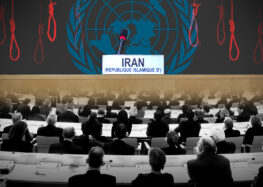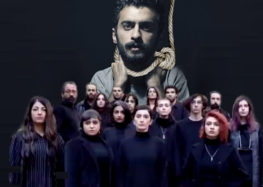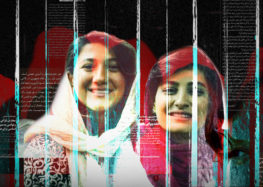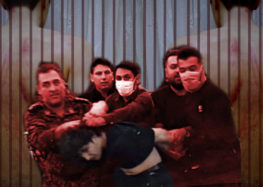Social Media Emerges as Major Battlefront in Iran’s May 2017 Elections
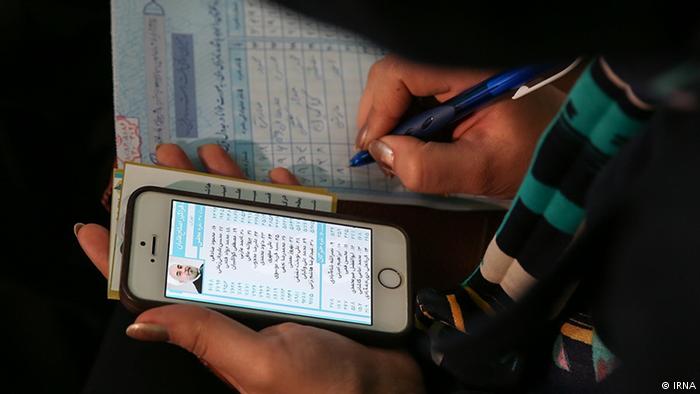
A month before Iranians head to the polls for the presidential and council elections, a heated exchange between the judiciary and the Intelligence Ministry has highlighted the growing tension over social media between different political factions in the Islamic Republic.
Several administrators of 12 reformist channels on the popular Telegram application who were arrested in March 2017 have found themselves at the center of the exchange.
With an estimated 20 million users in Iran, Telegram is the country’s leading social media app, according to a survey published by the Iranian Students Polling Agency in December 2015.
Weeks passed with no one taking responsibility for the arrests of the admins, which were either carried out by the Intelligence Ministry, operating under President Hassan Rouhani, or the Islamic Revolutionary Guards Corps (IRGC), which answers only to Supreme Leader Ali Khamenei.
However, a veiled accusation by the spokesman of the judiciary, which often sides with the IRGC in politically motivated cases, increases the chances that the admins were arrested by the IRGC. His comment also highlights hardliners’ growing obsession with controlling social media.
“Regarding this particular case, there are matters that relate to the intelligence minister himself (Mahmoud Alavi) and therefore he cannot comment on this case or prepare a report about it,” said the judiciary’s spokesman, Gholamhossein Mohseni Ejei, on April 12.
Hours later, the official Islamic Republic News Agency (IRNA) published Alavi’s reply.
“I don’t know of any crime the admins may have committed for which I share responsibility,” he said. “It looks like they may have been arrested because of me.”
CHRI has obtained an Instagram photo showing the minister posing with some of the detained admins. The Instagram account has since been shut down.
Administrators of popular social media and online sites in Iran customarily meet with government officials as both sides try to win support and access. However, meeting with the head of the Intelligence Ministry is unprecedented.
Telegram’s Growing Importance
With an estimated 20 million users in Iran, Telegram serves as a more open source of news and analysis operating alongside the country’s severely censored official news media.
Reformists, which are often blocked from appearing in traditional media, have been increasingly using it to reach the electorate.
Recognizing the app’s popularity, hardliners have consistently tried to ban or filter Telegram, while also setting up their own channels to reach voters.
The Rouhani administration has repeatedly called for less governmental control over the internet, which is heavily restricted and censored in Iran. This has invited the scorn of not only the agencies that police cyberspace, but also hardline politicians seeking to unseat him.
Rouhani reportedly resisted pressure from hardliners to shut down Telegram before Iran’s February 2016 elections for Parliament and the Assembly of Experts.
On April 5, Alavi said the Rouhani government opposed the detention of the detained admins and hoped they would be freed.
Hossein Raeesi, a former member of the Tehran Bar Association, told CHRI that the arrests of the admins, whose names have not been officially released, were unlawful because they were carried out without a warrant.
“The closure of their Telegram channels and the removal of their content also violated freedom of speech and the press, which are guaranteed by Article 24 of the Constitution,” he said.
According to Article 24: “Publications and the press have freedom of expression except when it is detrimental to the fundamental principles of Islam or the rights of the public. The details of this exception will be specified by law.”
In an open letter addressing IRGC Commander General Mohammad Ali Jafari on March 18, 2017, reformist member of Parliament Mahmoud Sadeghi wrote: “These arrests could be interpreted as the IRGC’s interference in the presidential election as a military institution, which is barred by the Constitution.”
A week after the arrests, CHRI learned that a number of the admins had been released, but Ali Heydarvalizadeh, the admin of the Majma Eslahtalaban (Reformist’s Forum) and Ali Ahmadnia, the admin of Eslahtat News (Reform News) remain incarcerated at an unknown location.
Other admins may remain detained.
Some of the admins had registered their channels with the Ministry of Culture and Islamic Guidance when the registration became a requirement in December 2016, thus exposing themselves to increased state surveillance.
“We wanted to carry out our activities legally and that’s why we registered,” one of the admins, who asked not to be identified, told CHRI in January 2017.
Responding to demands for the admins to be freed, Tehran Prosecutor General Mohammad Jafar Montazeri said on April 5, “Naturally those who get arrested have friends and fans who want them to be freed, but in regards to any detention, the judicial system tries to act according to the law.”

